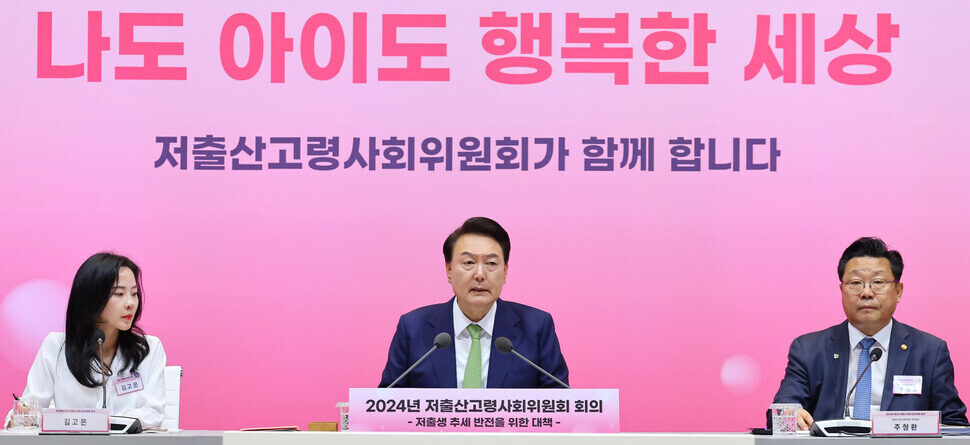Korea to launch population ministry to address low birth rates, aging population
Korea will launch a new ministry of population strategy to address low birth rates and a rapidly aging population, which have emerged as some of the starkest challenges facing the country, officials said Monday.
The government unveiled the plan following high-level meetings with the ruling party, saying that a revised government organization act will be proposed within July for the launch of the ministry.
Once established, the new ministry will focus on strategy and planning for demographic issues, such as low birth rates, population aging, workforce and immigration, serving as the control tower for these matters.
The ministry will also be responsible for drawing up population policies and mid- to long-term strategies, taking over the tasks currently managed by the health and finance ministries.
It will also be in charge of allocating and coordinating budgets for combating low birth rates across various related ministries, officials said.
The head of the new ministry will, meanwhile, double as the deputy prime minister for social affairs, one of the two deputy prime minister posts currently held by the education minister.
The ministry, once launched, plans to bolster public campaigns and promotions to address demographic challenges, and conduct research and analysis on demographic data, officials said.
The government predicted that the new ministry may go into operation about three months after the revision bill is passed, following necessary procedures, such as a parliamentary confirmation hearing for the minister.
The Presidential Committee on Ageing Society and Population Policy will also be put under the envisioned population ministry with a new name, the “Committee on Population Crisis Response.”
The government reorganization plan also included the creation of a new minister for political affairs, who will be responsible for enhancing communication between the government and the National Assembly and will serve as a member of the Cabinet.
The reorganization plan, however, did not include the abolition of the Ministry of Gender Equality and Family, despite the Yoon Suk Yeol government’s controversial stance to eliminate the ministry that focuses on women’s rights. (Yonhap)
Read more @koreatimes











